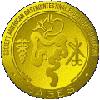SSAT MOC

Welcome to the SSAT Surgery Maintenance of Certification (MOC) Resource Page. Our goal is to provide a comprehensive listing of MOC resources available of interest to the general and gastrointestinal surgeon, provided as a service from the SSAT for its membership and friends. The sources below may be in evolution; please contact the individual societies/organizations for additional information.
From the American Board of Surgery
What is MOC? - How Does It Work - Why now? - Four Parts - MOC Resources
What is MOC?
-
Maintenance of Certification is a program of continuous professional development created by the ABS with the other member boards of the American Board of Medical Specialties (ABMS). MOC goes beyond traditional recertification at 10-year intervals to a ongoing process of education, assessment and improvement. MOC gives diplomates greater opportunity to assess the care they provide and formally demonstrate their commitment to lifelong learning and practice improvement.
-
MOC is a program developed by surgeons for surgeons. The ABS is working with specialty surgical organizations to ensure that MOC is relevant to all practice areas. MOC is also intended to be a single standard for documenting a surgeon's commitment to quality patient care. The ABS will coordinate its requirements with those of other regulatory organizations, such as state licensing boards, and is working with national and regional health insurers to gain recognition for diplomates participating in MOC.
How Does it Work?
ABS diplomates begin MOC once they certify or recertify in any ABS specialty after July 1, 2005. Until this occurs, the traditional recertification requirements for that specialty apply (see the respective recertification examination for eligibility and application requirements). MOC requirements run in three-year cycles. At the end of each cycle, diplomates report to the ABS about their MOC activities. A secure examination is also required at 10-year intervals. For diplomates who hold more than one certificate, only the secure examination must be repeated for each specialty.
Why Now?
Board certification is considered to be the gold standard in assuring that a surgeon has acquired and sustained a certain level of knowledge, skill and performance. MOC will ensure that board certification remains a recognized, surgeon-defined, standard of excellence. MOC will provide diplomates with improved learning opportunities and a means by which to document the quality care they provide, while giving patients greater assurance that a surgeon certified by the ABS is providing safe, effective treatment.
Four Parts
- MOC consists of four parts designed to assess physician competencies on a continuous basis:
- Part 1 - Professional standing through maintenance of an unrestricted medical license, hospital privileges and satisfactory references.
- Part 2 - Lifelong learning and self-assessment through continuing education and periodic self-assessment.
- Part 3 - Cognitive expertise based on performance on a secure examination.
- Part 4 - Evaluation of performance in practice through tools such as outcome measures and quality improvement programs, and the evaluation of behaviors such as communication and professionalism.
MOC Resources
-
Society for Surgery of the Alimentary Tract (SSAT)
 The Society for Surgery of the Alimentary Tract is working with Discourse, Inc, to develop state-of-the art MOC resources of particular interest to gastrointestinal surgeons. These modules, incorporating realistic patient vignettes, clinical data, radiology images, pathology reports, and audiovideo broadcasts, are being creating by the SSAT Committee on MOC, under the direct mandate of SSAT Presidents David Mahvi (2010) and David Rattner (2011).
The Society for Surgery of the Alimentary Tract is working with Discourse, Inc, to develop state-of-the art MOC resources of particular interest to gastrointestinal surgeons. These modules, incorporating realistic patient vignettes, clinical data, radiology images, pathology reports, and audiovideo broadcasts, are being creating by the SSAT Committee on MOC, under the direct mandate of SSAT Presidents David Mahvi (2010) and David Rattner (2011). -
American Society of Colorectal Surgeons (ASCRS)
 ASCRS is developing MOC resources for both the colorectal boards as well as the American Board of Surgery.
ASCRS is developing MOC resources for both the colorectal boards as well as the American Board of Surgery.
- Society of American Gastrointestinal and Endoscopic Surgeons (SAGES)
 SAGES is developing state-of-the-art MOC modules devoted to minimally invasive and/or endoscopic procedures and topics. They have also developed a video library as well as a "surgical wiki" resource.
SAGES is developing state-of-the-art MOC modules devoted to minimally invasive and/or endoscopic procedures and topics. They have also developed a video library as well as a "surgical wiki" resource.
http://www.sages.org/
http://www.sages.org/video/
http://www.sageswiki.org/index.php?title=Main_Page -
American Society of Clinical Oncology (ASCO)
 Please note: currently ASCO has modules including a GI cancers module that are acceptable to the American Board of Internal Medicine for MOC. While collaboration talks are underway, currently, the American Board of Surgery does not accept these modules for ABS MOC.
Please note: currently ASCO has modules including a GI cancers module that are acceptable to the American Board of Internal Medicine for MOC. While collaboration talks are underway, currently, the American Board of Surgery does not accept these modules for ABS MOC.
http://university.asco.org/ascouniv-moc
 Maintenance of Certification for Surgery
Maintenance of Certification for Surgery